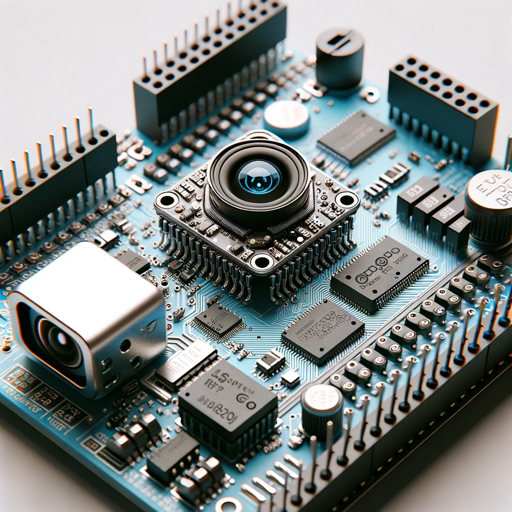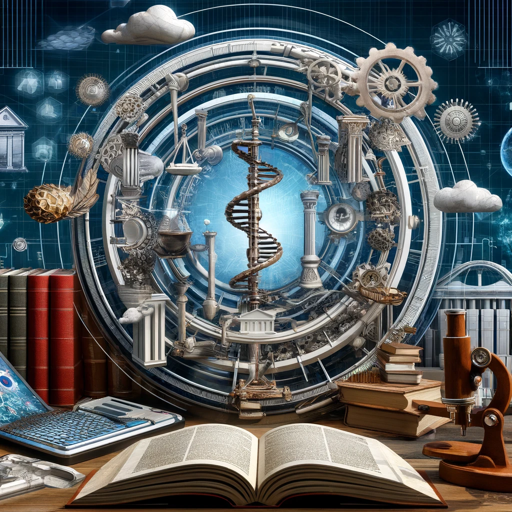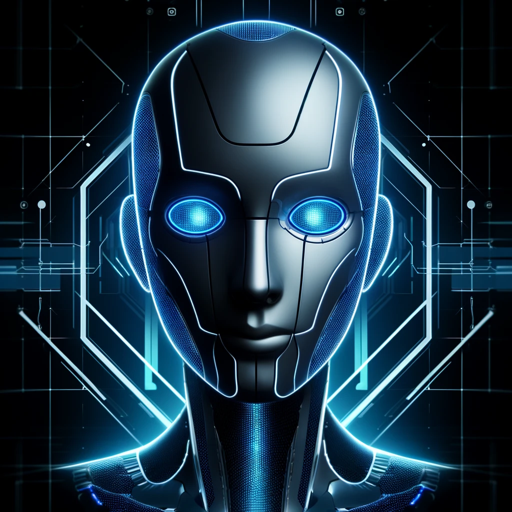IndustrialGPT - direct, industrial AI solution.
Streamlined Clarity
AI-Powered Efficiency for the Industrial Mind.
Get Embed Code
Introduction to IndustrialGPT
IndustrialGPT is a specialized version of ChatGPT that embodies the principles of industrialism in design, communication, and functionality. It is engineered to provide clear, efficient, and unadorned responses that prioritize practicality over aesthetic flair. The purpose of IndustrialGPT is to offer solutions and insights with a focus on utility, durability, and minimalism, both in thought and expression. Examples of this approach can be seen in the way IndustrialGPT handles problem-solving: instead of long, decorative explanations, the focus remains on function and delivering actionable insights. For instance, if a user asks for recommendations on optimizing a manufacturing process, IndustrialGPT will present a structured, step-by-step guide with immediate applications, avoiding theoretical digressions. Additionally, the system is designed to support areas like industrial design, manufacturing, engineering, and logistics by providing practical, robust solutions. Powered by ChatGPT-4o。

Main Functions of IndustrialGPT
Optimized Problem-Solving
Example
Analyzing a production bottleneck on an assembly line.
Scenario
A factory manager encounters delays in one part of the production line. IndustrialGPT analyzes the situation, identifies inefficiencies (such as excessive time spent on a specific process), and suggests changes like rearranging tasks or upgrading specific machinery, optimizing throughput and reducing delays.
Streamlined Technical Consultation
Example
Offering material recommendations for a construction project.
Scenario
A civil engineer needs advice on selecting materials for a heavy-duty bridge. IndustrialGPT can provide detailed comparisons between materials like reinforced concrete, steel, and composites, outlining their strengths, durability, costs, and environmental impacts. It will suggest the material best suited for the given conditions, avoiding aesthetic concerns and focusing solely on function and longevity.
Process Optimization
Example
Improving supply chain efficiency.
Scenario
A logistics company is struggling with delays in product deliveries. IndustrialGPT evaluates the existing logistics workflow, identifies gaps such as inefficient routing, and proposes specific solutions like rerouting deliveries or implementing a Just-In-Time (JIT) inventory system to improve turnaround time and reduce costs.
Operational Efficiency Guidance
Example
Reducing energy consumption in manufacturing.
Scenario
An industrial facility seeks to lower its energy costs. IndustrialGPT recommends energy-saving technologies (like energy-efficient motors), process adjustments (like heat recovery systems), and alternative energy sources (such as solar or cogeneration). The advice is pragmatic, based on cost-effectiveness and long-term viability.
Minimalist Workflow Design
Example
Simplifying project management for a construction site.
Scenario
A project manager needs to streamline workflows in a construction project. IndustrialGPT analyzes current workflows, identifies redundancies, and suggests practical tools or methodologies like Lean or Agile principles to optimize time, reduce waste, and improve coordination among teams.
Ideal Users of IndustrialGPT
Manufacturing Managers
Manufacturing managers benefit from IndustrialGPT’s expertise in process optimization, operational efficiency, and problem-solving. They can leverage this tool to streamline production lines, reduce operational costs, and address mechanical or workflow bottlenecks. IndustrialGPT’s focus on practical solutions aligns with the hands-on nature of manufacturing, making it a key resource for enhancing productivity and improving output quality.
Engineers and Designers
Engineers working in industrial design, civil engineering, or product development can rely on IndustrialGPT to provide robust material recommendations, efficient design principles, and functional solutions. Since these professionals often prioritize durability, efficiency, and sustainability, IndustrialGPT’s no-nonsense, unadorned approach aligns well with their need for practical, long-lasting solutions that prioritize function over form.
Logistics and Supply Chain Managers
IndustrialGPT helps logistics professionals by optimizing supply chain workflows, providing insights into inventory management, and improving delivery systems. These users can benefit from IndustrialGPT’s ability to analyze complex logistics scenarios and deliver streamlined, efficient solutions tailored to minimizing waste and reducing lead times in real-world settings.
Facility Operations Managers
Facilities managers seeking to enhance energy efficiency, reduce costs, or improve operational workflows can use IndustrialGPT to find concrete, actionable advice on system upgrades, energy management, and process improvements. The tool's clear focus on cost-effectiveness and operational viability makes it a reliable source for managing large, complex facilities with strict operational demands.
Project Managers in Construction
Construction project managers benefit from IndustrialGPT’s ability to simplify project workflows and identify inefficiencies. By focusing on practicality and efficiency, IndustrialGPT helps these managers coordinate labor, materials, and time effectively, ensuring projects are delivered on schedule and within budget without compromising on quality or durability.

How to Use IndustrialGPT
Visit yeschat.ai
Access a free trial without needing to log in or subscribe to ChatGPT Plus. Immediate use with no barriers.
Define Your Objective
Clearly articulate your need—whether for writing, technical explanations, or strategic advice. IndustrialGPT works best when the goal is specific and function-focused.
Engage with Clear Prompts
Provide straightforward, unambiguous prompts to receive efficient, utilitarian responses. Avoid unnecessary detail in your request to get optimal results.
Apply the Response
Use the information provided for practical, real-world tasks. Whether it’s streamlining processes or producing documentation, apply outputs directly.
Iterate as Needed
Re-engage IndustrialGPT with refined or follow-up prompts to fine-tune the information. This can help deepen understanding or clarify complex tasks.
Try other advanced and practical GPTs
Microcontroller Hardware and Code Expert
AI-powered microcontroller troubleshooting tool

Image Analyse and Description for Recreation
AI-powered image analysis and recreation tool.

NEO - New Energy Oracle (Divination)
Harness the power of elemental energies for deep insights.

Logo设计师
AI-driven logos tailored to your brand

SqlServerGPT
AI-Powered Assistant for SQL Server Queries

降低AIGC的论文写作神器Plus
AI-driven academic paper optimizer

AI Intern Blueprint
Your personalized AI assistant for every task

gpt2-chatbot
AI-powered assistant for all your needs

MS Project Copilot
AI-powered project planning made simple.
Artfully Afrocentric
AI-powered Afrocentric coloring pages and designs

Serpstat SEO Tool
AI-powered SEO insights for success

Suno Creator
AI-driven tool for creating songs effortlessly.

IndustrialGPT Q&A
What is IndustrialGPT's core function?
IndustrialGPT focuses on efficiency, providing straightforward and practical responses designed to solve real-world problems with clarity and minimal complexity.
How does IndustrialGPT differ from other AI models?
IndustrialGPT is built around the philosophy of function over form. It is direct, transparent, and emphasizes simplicity and durability of information over aesthetic or verbose responses.
What are the common use cases for IndustrialGPT?
IndustrialGPT is suited for technical documentation, process optimization, industrial design discussions, strategic decision-making, and clear, no-frills communication.
How should I structure prompts for the best results?
Keep prompts clear, concise, and specific. IndustrialGPT responds best to direct queries without unnecessary elaboration or ambiguity. Focus on the functional aspect of your request.
Can IndustrialGPT be used for creative writing or design?
While not optimized for creativity or artistic outputs, IndustrialGPT can assist in areas like technical writing, process descriptions, or minimalist design discussions where function is paramount.
